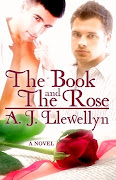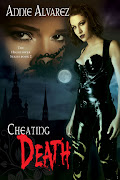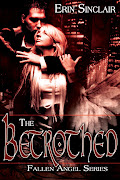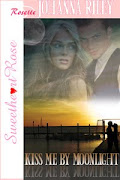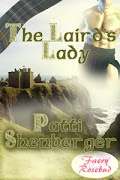Permission granted by debut historical author Cheryl Ann Smith.
1-Hello Charles! Welcome! Can you please start us off with a bit about yourself? Where you grew up? Favorite vices? Any deep dark secrets you’d like to share?
I’m a Pisces from the D.C. suburbs who escaped to the concrete jungle quite a bit ago. I live in Brooklyn now and can’t complain. I’m squeaky clean—no vices whatsoever! The same goes for deep dark secrets—none. And if you believe that, I have a bridge in Brooklyn I’ll sell ya.
So I guess I choose to remain a man of mystery where your latter two questions are concerned.
2-Other than living the exciting life of a NY editor, what do you enjoy doing on your off time?
The exciting life of a NY editor, huh? Who have you been talking to? I need some pointers for jazzing up my routine! J
I LOVE swimming—I guess it’s the Pisces thing. As for culture, I’ve been hanging out with a lot of video artists lately and have somehow been roped into performing in videos here and there. The trouble is, I’m not really a performer. So, for example, coming up in November, I’m in a dance show (videotaped before a live audience)—and I can’t dance!
I’ve also been trying to cook more elaborate dishes lately. Let’s just say the results have been indescribable.
3- Have you always wanted to be an editor and what drew you to the romance publishing field?
I’ve always been intense about books. But it hadn’t occurred to me to try to make a living out of this obsession, until I heard about the opportunity to join Harlequin. I guess I was in denial. Not anymore—I’m hooked on what I do.
I came to romance by chance but have stayed by design. People tend to put genre fiction down, but I think it has unique possibilities for revealing great truths in unexpected ways. (Without beating readers over the head with said truths, the way some high-falutin literary creations tend to do.) As for romance specifically—I like a happy ending, it’s human nature to like a happy ending, and I am human.
4-Romance publishing is widely thought of as a female oriented field as most (but not all) authors and editors in the genre seem to be women. What unique prospective, as a man, do you bring to this business and Silhouette Desire in particular?
I don’t want to discount the validity of this question by saying that being a guy makes no difference whatsoever. But my experience has been that it makes very little difference—in fact, my being a male editor, with a man’s POV, came up exactly once with respect to one specific sentence in a book I was editing three or four years ago.
Ultimately, these books are about male and female characters, told from the heroes’ and heroines’ points of view. A full range of human, loving feelings is being expressed. So by extension there’s room in the field for male and female writers and editors. And everybody appreciates a good story well told—that’s the bottom line.
As far as Silhouette Desire goes, the line is more passionate, yes, but passion doesn’t shock me. Passion is natural, passion is fun, and passion makes the stakes in a story even higher.
5- We sometimes hear stories about strange submissions, such as confetti falling out of envelopes or manuscripts written on colored paper in white type. Have you ever had an unusual submission cross your desk?
Why, yes, I have—some of the illustrated material that has come through has been very—interesting? Intriguing? Words fail to describe it…trust me! Ultimately, confetti sounds fun, but it’s best to stick with the more standard modes of manuscript delivery and confine the party to the great writing one submits.
6-Since the Desire line focuses on wealthy heroes, is there a certain type of hero that is your favorite; such as CEOs, Princes, or Cattle Barons?
I’m fickle. Right now I’m not feeling royalty so much but that can change. As for businessmen and wealthy ranchers, I like them as heroes, especially when they are part of a family business dynasty. And let’s not forget the billionaires with babies, secret or otherwise—I’m loving that combo at the moment.
7-It’s common for Silhouette authors write multiple books per year. Is there a preferred minimum or maximum amount of books you’d like to see your authors write yearly?
Well…when your readers are wanting more, it’s good to keep them getting more. When you sell your first book, sometimes it can take some time to get the second one out there. That’s natural. But once you’ve established a publishing track record, to get up to three or more series books published a year is a very nice pace—one that keeps the fans very engaged.
8-What can an author do to make his/her manuscript stand out in a slush pile? Contest wins? Previous publication?
Previous publication and contest wins certainly help. Short to-the-point cover letters, without too many gimmicky come-ons really work, too.
9- What are some common mistakes new authors make with submitting a manuscript to you? Do cash bribes, Rolexes, chocolate or gold doubloons help get an author noticed or does their work have to stand on its own?
The worst mistakes are to target the wrong line and get the word count wrong. Doing the homework and making sure the story fits the imprint is crucial.
As for bribes, what are you trying to do, get me in trouble? J The best bribe is great writing—end of story.
10-What is the best part of discovering new talent?
When the senior editor says buy it, my heart leaps. Sharing the news with the author, establishing a rapport, bonding over a book—it’s all magical.
11-What is your turn around time on a submission? If an author hasn’t heard back in that time frame, how should they check back? E-mail? Phone call?
We aim to respond to submissions within a three-month window, but if you don’t hear back, it’s good to call.
Charles Griemsman
Associate Editor, Silhouette Desire













